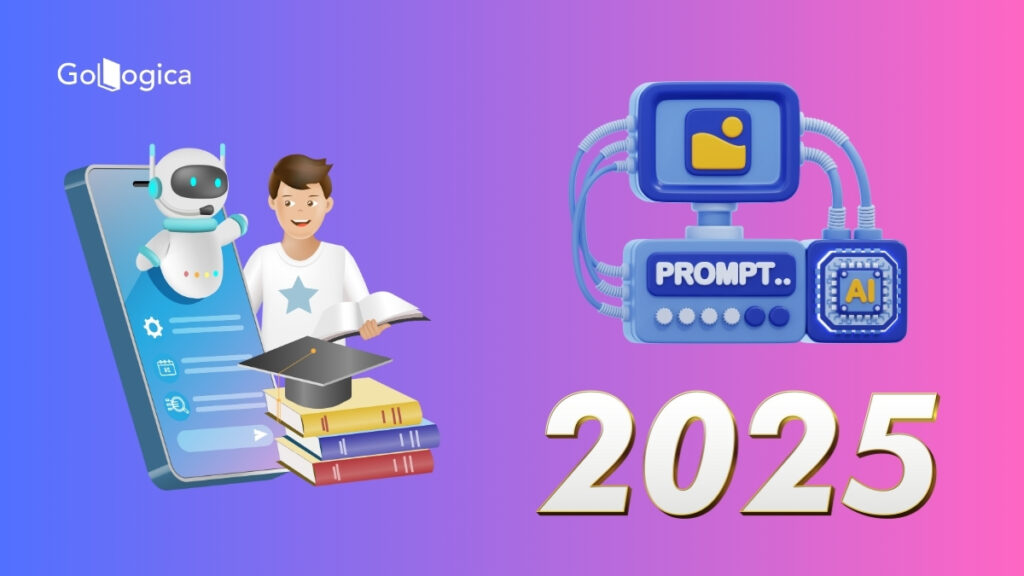

Top Prompt Engineering Tools for 2025
Generative AI has transformed industries to a great extent. It allows innovation in automation, content creation, and customer engagement. The significance of prompt engineering in optimizing AI outputs has become a key factor. It includes creating accurate input prompts to assist AI systems. This includes Bard, ChatGPT, and more to provide valuable and precise results.
Here, explore generative AI and prompt engineering. It includes the tools’ advantages, features, drawbacks, and pricing. Whether a professional or a beginner, becoming a master in these tools can be beneficial. This will be more fruitful if paired with Generative AI certification training. The training provides the basic knowledge required to master this field.
What is Generative AI?
It is a type of artificial intelligence, which can create new content. This includes images, video, text, audio, and code. Generative AI creates new content based on the patterns it has learned from training data. Moreover, it delivers original outputs, which can resemble human-created content.
Some well-known examples of generative AI are:
- ChatGPT – Generating text and conversations
- DALL·E – Creates images from text prompts
- GitHub Copilot – Generating code suggestions
- Deepfake technology – Altering videos and audio
Generative AI models are created based on deep learning techniques. This includes GANs (Generative Adversarial Networks) and transformers for creative outputs. They are used in gaming, content creation, design, and research.
Enrolling in Generative AI certification training will help you explore more about it in detail. The course will be led by experts and it covers every aspect of generative AI.
What is Prompt Engineering?
It is the process of creating precise and effective prompts for AI models. This is to attain specific and accurate prompts. Prompt engineering includes understanding the capabilities, limitations, behavior, and limitations of models. This helps design prompts, which assists the AI response in an accurate and controlled manner.
Prompt engineering includes problem-solving, creativity, and technical knowledge to optimize interactions with AI systems. It is a key skill in AI interaction. As AI is evolving continuously, mastering prompt engineering is essential. It can help improve productivity and creativity in several fields.
Prompt engineering is useful in certain tasks. It includes:
- Design and Creativity – Generating UI layouts, images, or art.
- Content Generation – Writing emails, blog posts, or scripts.
- Education and Research- Answering questions, and summarizing papers.
- Programming- Assisting in debugging, coding, or automation.
Prompt Engineering Techniques
- Provide Context
- Always be specific and clear
- Define format
- Use step-by-step instructions
| Learn more information from the GoLogica “Machine Learning Masters Program“ |
Prompt Engineering Tools
Prompt engineering tools are specialized software or platforms designed effectively. It helps the users to optimize and fine-tune their interactions with AI models. These tools provide features like version control, real-time feedback, and version control on how diverse inputs affect the model’s output.
Advanced tools may also include testing environments. In these environments, users can experiment with prompts across various models or scenarios. This will help in identifying the effective phrasing. These tools simplify the process of creating and fine-tuning prompts. With this, the tools help the users to attain more consistent, contextually relevant, and precise AI outputs.
Here is the list of top prompt engineering tools for the year 2025:
1. PromptPerfect
This prompt engineering tool focuses on optimizing prompt structures. With this, the tool provides better AI output using algorithms, which evaluate and refine input for efficiency.
Key features
- Optimization Insights: The tool provides detailed and precise reports on how to improve prompts.
- AI Model Support: The tool supports MidJourney, GPT-4, and cohere.
- Multi-Language Support: PromptPerfect can optimize prompts in various languages.
- Integration Tools: It has plugins for integrating with famous AI platforms directly.
Pros
- It provides accurate improvements in prompt effectiveness.
- It integrates easily with the existing workflows.
- The tool is best for multilingual projects.
Cons
- It is a learning curve for first-time users.
- It has a higher cost as compared to competitors.
Pricing
- Its subscription plan begins at $19 per month for individuals and $49 per month for teams.
2. PromptLayer
It plays the role of a version control system for prompt engineering. With this, the users can manage, track, and efficiently fine-tune their prompts.
Key features
- Cloud Storage: The tools store and access the prompts securely anytime.
- Prompt Versioning: It helps in tracking changes and reverting to older versions.
- Usage Metrics: The tools monitor the success rates of the prompt and adjust accordingly.
- Collaboration Tools: The tools enable multiple users to work on one project.
Pros
- The tool is secure and can be accessed from anywhere.
- It is ideal for large-scale projects.
- It provides detailed analytics, which improves prompt effectiveness.
Cons
- It is costly for small teams.
- The tool is ideal for advanced users.
Pricing
- Its subscription plan starts at $25 per month.
3. PromptHero
It is an innate platform for discovering and sharing AI prompts. The tool is compatible with several AI systems. This makes it a versatile tool for experts and beginners.
Key features
- Cross AI compatibility: It supports models such as DALL-E, GPT-4, and Stable Diffusion.
- Search and Filter Options: It has advanced filters to find prompts that meet specific needs.
- Prompt Library: The tool includes an ideal collection of prompts across diverse industries.
- Community Collaboration: Users can share, upvote, and improve prompts collectively.
Pros
- A large source of prompts that are ready to use.
- Fosters a collaborative learning environment.
Cons
- Limited advanced features without the subscription.
- It relies on community-generated content that might vary in quality.
Pricing
- The tool has a free version.
- Its premium plan begins at $9.99 per month.
4. AIPRM for ChatGPT
This is an efficient extension for ChatGPT users. It has a wide range of suggestions and templates for prompt engineering.
Related Courses Information
| Program Name | Duration | Fee | View Details |
|---|---|---|---|
| Generative AI Certification Program in Hyderabad, IN | 24 Weeks | ₹88200/- | Enroll Now |
| Generative AI Training in Chicago, US | 24 Weeks | ₹88200/- | Enroll Now |
| Machine Learning Master’s Program | 48 Weeks | ₹72900/- | Enroll Now |
| Artificial Intelligence Masters Program | 24 Weeks | ₹78300/- | Enroll Now |
| Data Science Masters Program | 24 Weeks | ₹88290/- | Enroll Now |
| Automation Testing Masters Program | 24 Weeks | ₹59400/- | Enroll Now |
Key features
- Custom Prompt Creation: The tool helps you design and save customized templates.
- Frequent Updates: Its library is regularly updated for emerging use cases.
- Template Library: Prebuilt prompts for several industries.
- Execution in One-Click: The tool helps in applying prompts in ChatGPT instantly.
Pros
- It is user-friendly.
- Its freemium model allows exploration without commitment.
- It is ideal for small businesses and beginners.
Cons
- It is exclusive to ChatGPT users.
- Accessible only to limited functionality without a premium subscription.
Pricing
- The tool provides a free version with basic templates.
- Its premium plan begins at $15 per month, which has advanced features.
5. FlowGPT
It is designed for experts who want to develop sophisticated conversational flows and situations using generative AI.
Key features
- Scenario Testing: Replicate conversations to ensure flow accuracy.
- Conversation Designer: Innate drag-and-drop interface for developing AI-driven workflows.
- Analytics Dashboard: The tool provides insights into the performance of conversational designs.
Pros
- It is perfect for chatbot development and customer service.
- The tool allows collaboration among teams.
- It provides comprehensive analytics for improving performance.
Cons
- It is not good for general-purpose prompt engineering.
- The tool requires a background in developing chatbots.
Pricing
- Its subscription plan begins at $29 per month for individuals.
- For enterprise solutions, the tool provides custom pricing.
6. OpenAI Playground
It remains a main tool for experimenting with prompt engineering. Thus, providing a secure space for testing prompts using several GPT models.

Key features
- Model Customization: The tool can be adjusted to max tokens, temperature, and other parameters.
- API Integration: The tool gets connected with the custom apps without any hassle.
- Interactive Interface: Test and tweak prompts in real time.
- Prompt Templates: The tool has prebuilt suggestions for quick testing.
Pros
- The tool is versatile and ideal for beginners.
- It provides deep customization for outputs.
- It offers a free tier for testing.
Cons
- It has limited advanced features as compared to dedicated tools.
- The tool requires API credits for extensive usage.
Pricing
- It makes use of a pay-as-you-go model with pricing depending on the API usage.
- Its cost begins at $0.03 per 1k tokens for GPT-4.
Why is Generative AI Certification Training Essential?
The demand for generative AI is increasing. As a result, professionals have to stay updated on the best practices and latest tools. In this scenario, joining Generative AI certification training is an ideal choice. These courses often include the latest techniques and tools. With this course, you will be able to master the constantly changing AI landscape.
The generative AI certification course provides:
- Hands-on Experience: With this course, you will attain practical experience with the tools mentioned above.
- Comprehensive Knowledge: The training will help you learn the basics of generative AI and prompt engineering.
- Career Development: The certifications boost credibility. It also helps you explore new opportunities.
Final Words
The year 2025 will see continued developments in generative AI. Thus, mastering prompt engineering is essential for leveraging these innovations. Prompt engineering tools like PromptPerfect, FlowGPT, and PromptHero provide unique features. This helps the professionals in optimizing AI performance across several use cases.
Enrolling in the generative AI certification course and excelling in these tools will help you stand out in the market. Learning how to leverage the capabilities of generative AI and mastering prompt engineering will help you attain career heights.
👉 Generative AI Syllabus:
🎯 Python
🎯 ChatGpt

